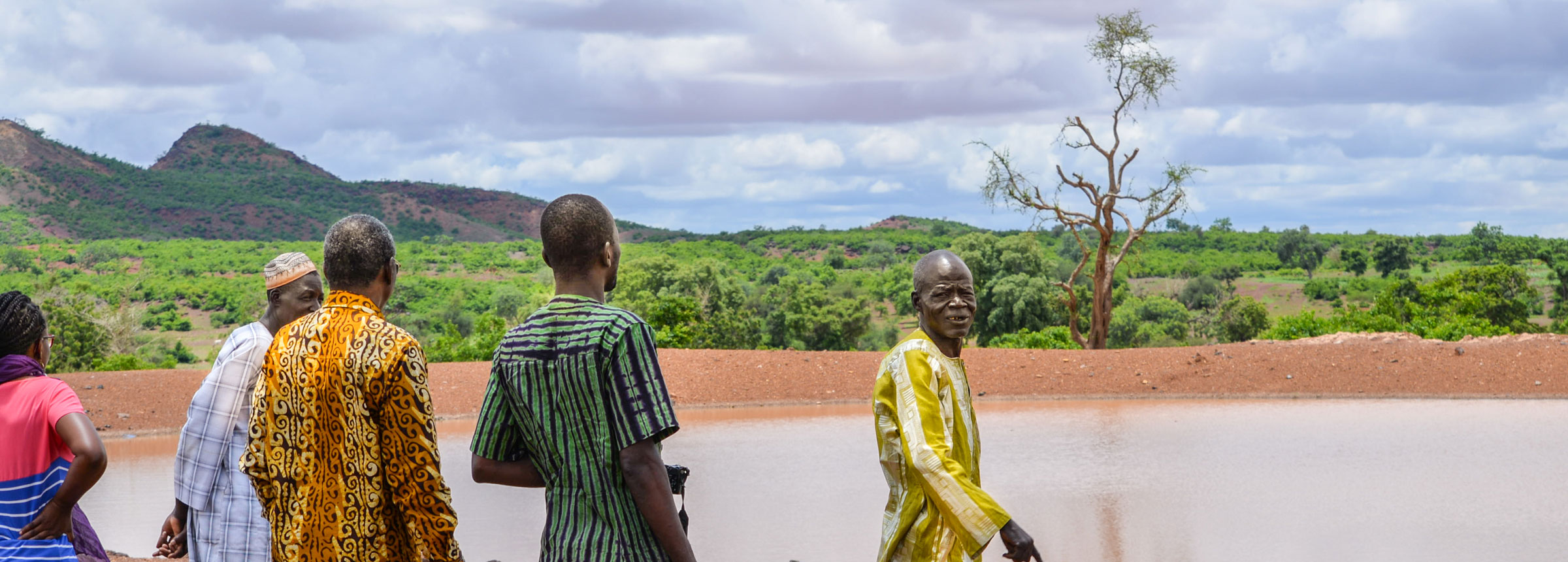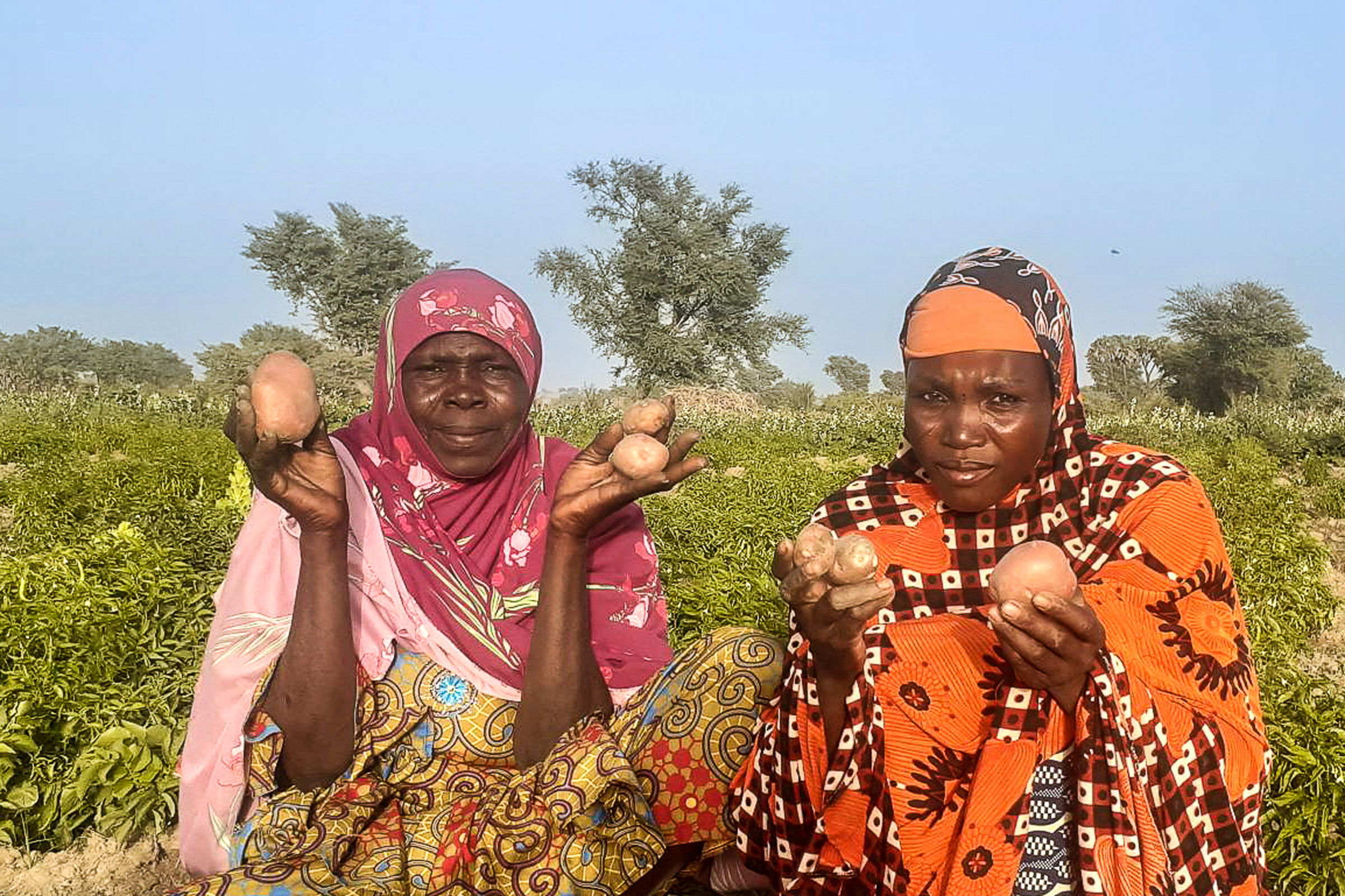
Three approaches to support locally-led land management solutions to strengthen climate resilient food systems in the Sahel
Sustainable land management practices benefit from land tenure clarity, as landowners are more likely to engage in climate resilient, regenerative agricultural practices once their tenure rights are guaranteed, either permanently or with a documented long-term lease. That is particularly important in the Nigerien context, whose exposure to successive droughts and floods event has become a reality, as longer-term beneficial practices reduce erosion and contribute to groundwater recharge. The newly adopted rural land policy of Niger provides the opportunity to secure land tenure rights at different scales for individuals, groups of people, or communities. The five-year USAID TerresEauVie Activity, a key element of USAID’s Resilience in the Sahel Enhanced (RISE II) project, implemented by Winrock International and Tetra Tech since the beginning of 2019, supports the socialization of the policy across institutions and communities and supports the practical implementation of that policy, strengthening resilient and sustainable food systems that nourish people and land. To accomplish this, the USAID TerresEauVie Activity has taken three key approaches:

Photos by: Ollivier Girard / USAID (half moons) and Leonora Baumann /USAID (farmer)
Securing communal grazing land and managing it through local conventions that benefit pastoralists and agropastoralists
Niger’s livestock population, with more than 9 million head of cattle, contributes to 35 percent of the country’s agricultural GDP, 14 percent of Niger’s total GDP. Yet, grazing areas have been shrinking over the last decades under combined demographic and agriculture expansion pressures. Following community consultations, TerresEauVie supports the registration of the remaining communal grazing areas into the official land tenure system to ensure that those will be accessible for future generations of pastoralists and agropastoralists. Pastoralists focus on livestock breeding as a primary activity while, as part of a strategy to adapt to climate variability, agropastoralists have historically combined agriculture activities during the rainy season and transhumant livestock husbandry during dry seasons.
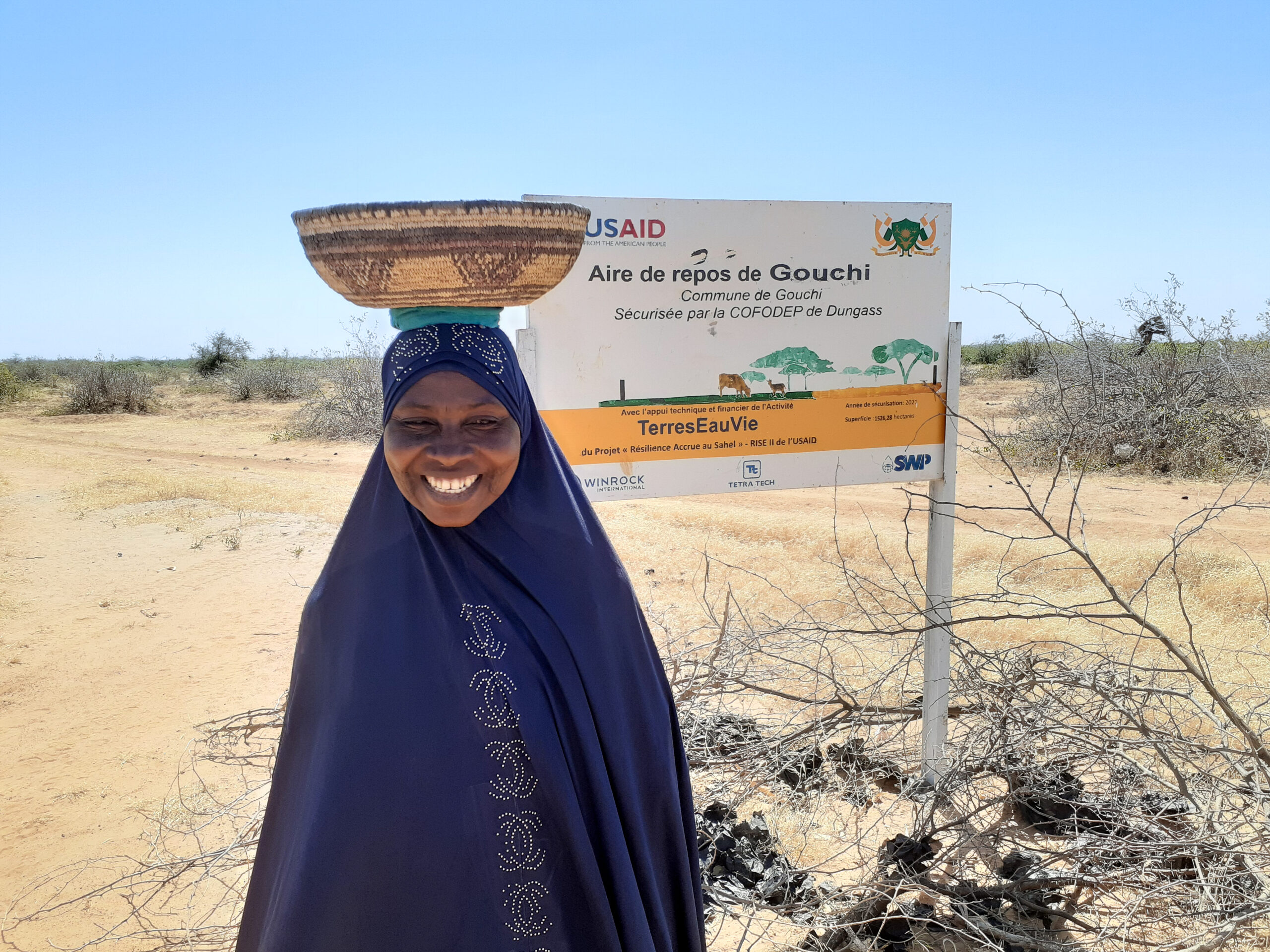
Photo by: Abdel Nasser Moumouni, TerresEauVie, Winrock International
That land tenure process will pave the way for grazing land restoration projects from development partners, who are reassured by the fact that their investments will continue benefiting the larger population in the long term. In addition, TerresEauVie supports communities in developing resource-based land management plans for communal assets, following participative and inclusive discussions and negotiations. The local conventions resulting from that process are then validated by the communal authorities, formally registered, and widely disseminated to improve long-term management of the grazing land or water pond and to mitigate the risk of conflict between herders and farmers.
In Niger, farmers and herders have been increasingly involved in deadly clashes over land use to sustain their livelihoods. To address this, the USAID TerresEauVie activity helped several communal and departmental land commissions manage more than 32,000 hectares of pasture areas in the Zinder and Maradi regions. This new management includes delineating pasture areas, demarcating cattle passage corridors, and issuing official land tenure documents. Along with other partners, TerresEauVie will continue to support the management of this land until its parameters are fully integrated within local and state government services.
Securing land rights for women and youth associations that work on market gardening
With an estimated 2.5 billion cubic meters of renewable water, of which only about 20 percent is currently used, Niger has enormous groundwater resources. The potential to expand the burgeoning off-season irrigated agricultural production, such as with market gardens, has not gone unnoticed. The Government of Niger has made use of this water for irrigated agriculture one of its priorities.
Women’s access to land encourages them to invest in improving land quality and productivity and avoids environmentally harmful practices (such as soil depletion). In Niger, several USAID-funded projects such as Hamzari, Girma or Wadata and World Food Program are supporting groups of women and youth to effectively exploit market gardens (where they grow tomatoes, onions, cabbage, etc.) to sell their produce and generate income. TerresEauVie, a flagship water security and land tenure Activity, ensures the sustainability of USAID investments in equipment and training (in cultivation techniques, soil and land management, and water resources) by supporting women in securing land rights, bridging a critical gap to achieving sustainability.
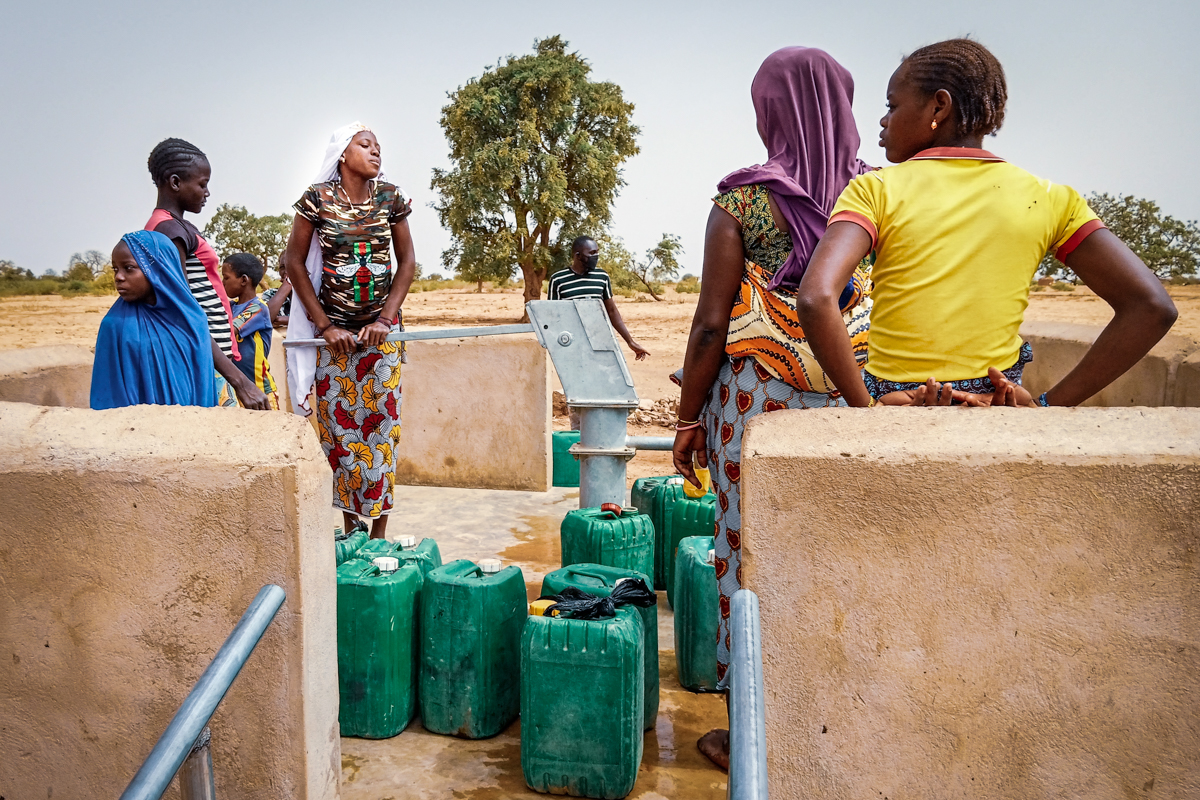
Photo by: Salifou Boukari, TerresEauVie, Winrock International
Previously, these women did not have an official land tenure document indicating that land had been loaned to them or their documentation was incomplete. They felt vulnerable as they could be forced to leave by the landowners without notice, which limited their long-term investments on that land. By supporting communal land commissions to issue land deeds to these women or provide quality control on existing land documents and then officially register them, TerresEauVie enabled about 1,200 women (including 150+ young women between 15 and 29) to have secure access to land (more than 45 hectares secured), via loans of an average duration of five years renewable, or through permanent donations. Now, the land they cultivate can no longer be taken away from them arbitrarily. They will continue to invest in improving land productivity (quality inputs, organic fertilizers, etc.) while protecting the soil so that it remains fertile. This will increase their incomes and the benefits for their families.
Strengthening local land tenure institutions
It is estimated that less than 3 percent of private land in Niger is officially registered through the government land tenure system. The situation can potentially lead to conflicts within and between families. Considering the increasing pressure on land resources, conflicts between farmers are likely to outnumber conflicts between herders and farmers in the coming years.
Addressing the long-standing, unresolved issue of rural land tenure in Niger, the USAID TerresEauVie Activity trained communal land agents on Nigerien land policy, provided them with materials and knowledge to perform their duties, and to train village level land tenure agents. In addition, TerresEauVie facilitates quality control missions in the field to assess practical implementation of the policy. The activity also supports the piloting of digitization of the rural land governance system at the communal level, as the Government of Niger had only initiated that digitization process up to the department level, having postponed the roll-out to the communes until a later date. A few communes have now digitized their land tenure information in the national database on the centralized server in Niamey.
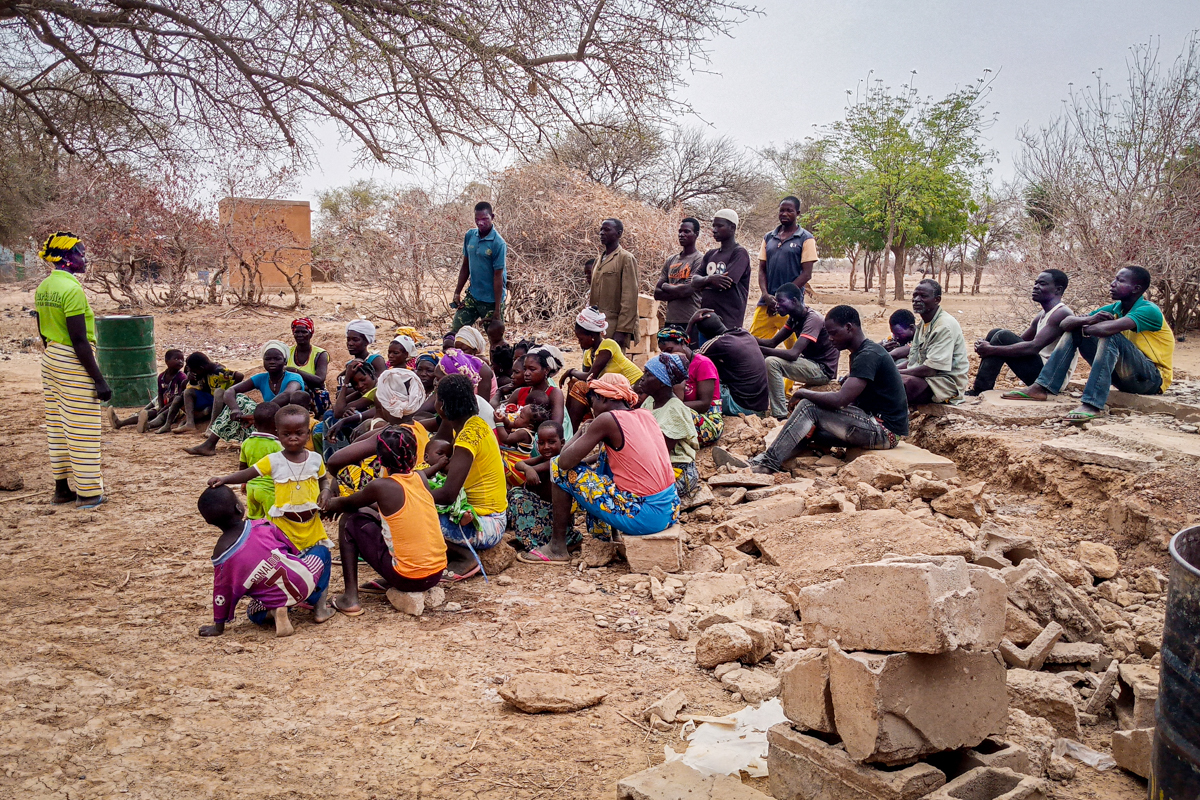
Photo by: TerresEauVie, Winrock International
TerresEauVie also co-led the organization of the very first National Week for Rural Land Tenure in Niger. The event, hosted by the Ministry of Agriculture, brought together more than 200 participants from Communal Land Commissions, state actors, civil society organizations, as well as technical and financial partners. Coming from all parts of the country, participants discussed the issues, challenges, and opportunities for improving rural land tenure governance in Niger that, if resolved, would benefit small farmers and communities. The event’s value was recognized by senior officials who announced that the Government of Niger intends to make this an annual event to enforce and strengthen rural land rights and improve natural resources management in the country.
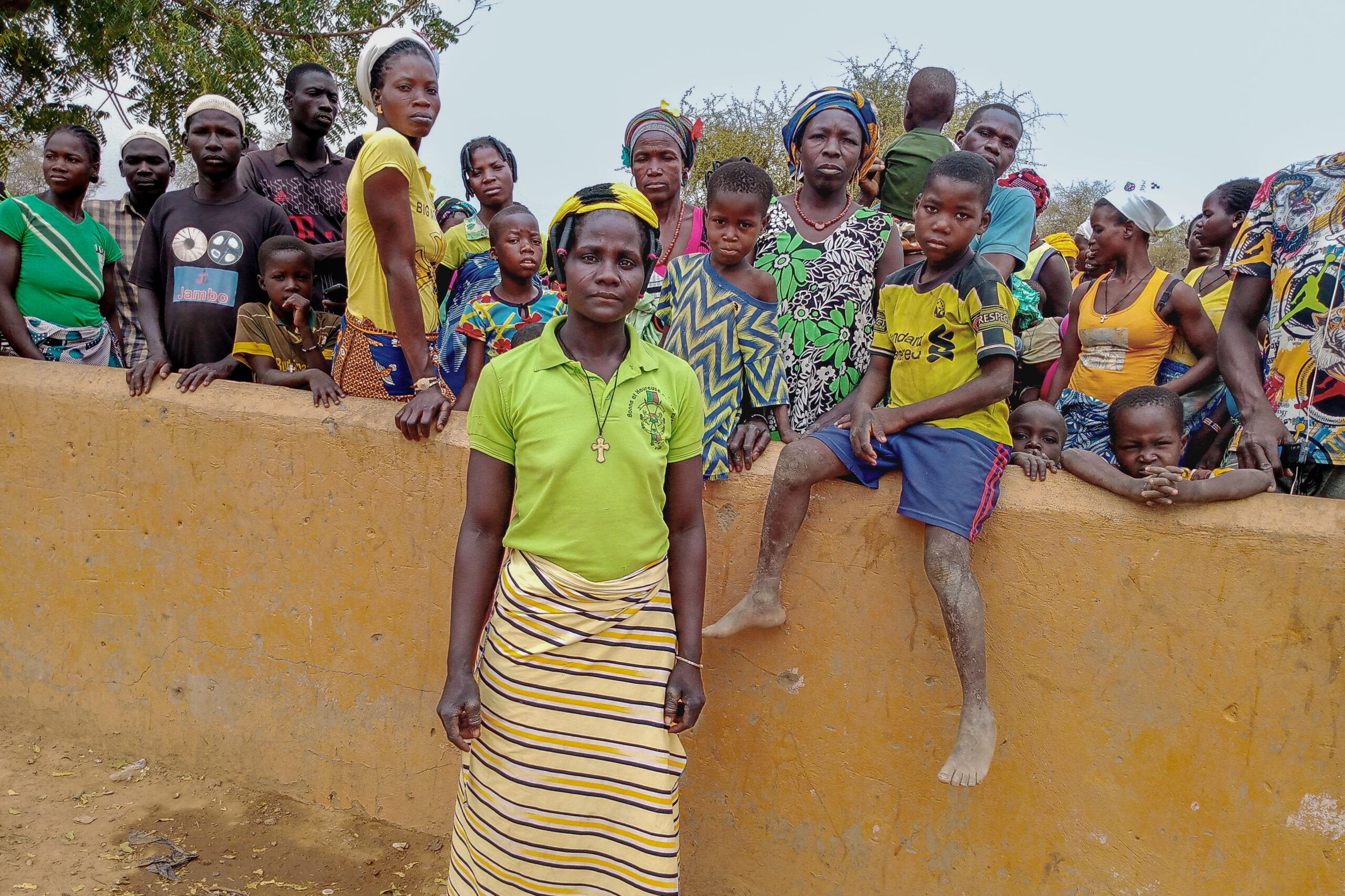
Photo by: TerresEauVie, Winrock International
Land tenure is a complex issue that often undermines agricultural investment, especially for climate resilient, sustainable practices that require consistency and long-term commitment, but progress can be and is being made in the Sahel. TerresEauVie supports local institutions and communities with a set of climate smart solutions adapted to local contexts and preferences, that support both herders and farmers in realizing the full benefits of land tenure and are aligned with the land tenure framework of Niger.
To learn more about TerresEauVie’s natural resource management work, check out this article on Climatelinks.
This story was originally published on Agrilinks.
Related Projects
